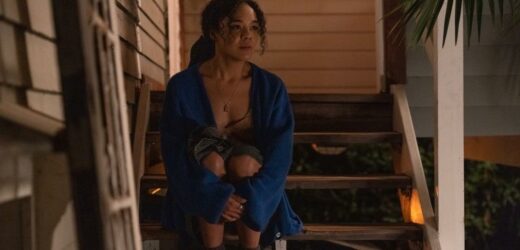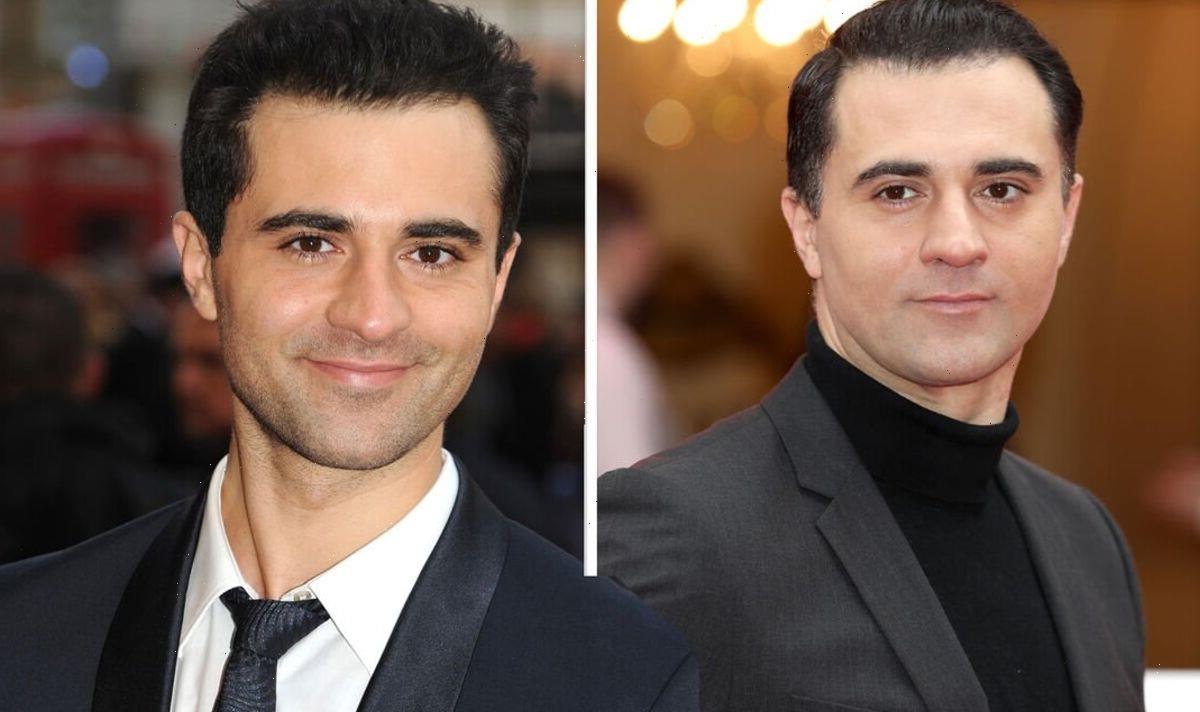If you found yourself wide awake in the wee small hours with personal demons rattling in your brain, and you picked up the phone to share them with a patient, neutral stranger, Tessa Thompson’s measured, calming voice is more or less exactly what you’d hope to hear on the other end of the line. As Beth, a night-shift volunteer for a crisis helpline, the actor’s naturally gentle, benevolent presence is the chief asset of Steve Buscemi’s minor-key chamber drama “The Listener” — not that she has a host of elements to compete with in what amounts, on screen at least, to a one-woman show.
Thompson’s unforced credibility isn’t shared, however, by a flat, superficial script that treats an assortment of mental health ailments as quirky conversation fuel. Each anguished call that Beth takes, over the course of one long, dark night of assorted souls, is written less like a recognizable human exchange than as an actor’s heightened audition piece, and played out as such by a voice-only ensemble stacked with distractingly recognizable names. Though the global pandemic is only incidentally mentioned, “The Listener” plays in all aspects like a project conceived in the most self-searching and self-indulgent depths of the isolation era. It’s hard to imagine audiences wanting to enter that headspace now.
At a certain time after midnight, Beth — not her real name, as we’ll soon learn — wakes up and sets about the morning rituals that most others won’t begin for a few hours. Once she’s stretched, washed and been suitably caffeinated, she puts on her earpiece and gets to work, never leaving the cozy, low-lit house she shares with a sleepy dog in a large, unspecified American city. At this witching hour, the calls come in a constant stream: some brief and relatively benign, some long and psychologically perilous. Whatever the case, Beth handles it with the same assured, soft-spoken sangfroid — at least, until one particular caller gets under her skin.
That’s not easily done. In the space of a few hours, she fields a number of fairly upsetting calls from emotionally damaged people that, in this line of work, are nonetheless business as usual. There’s a lonely ex-con (Logan Marshall-Green) still finding his feet in the outside world, triggered by mask requirements that remind him of his face-concealing criminal past. There’s the bipolar woman (Alia Shawkat), off her meds, whose wildly darting, disconnected ideas Beth suggests could be formed into spoken-word poetry. And there’s the embittered teenage incel whose professed hatred for the women who look past him makes him not so much a character as an internet-drawn archetype.
Screenwriter Alessandro Camon (an Oscar nominee for “The Messenger,” whose director Oren Moverman takes a producer credit here) writes all these encounters with a somewhat theatrical verbality that never quite rings true. A few callers articulate their problems in a convenient, nailed-on therapyspeak that sounds particularly artificial in dialogue with Beth’s unwavering empathy; at a certain point, even the pauses and stutters in conversation begin to sound studied.
Things take a moderately more compelling turn when a sharp, intellectually combative woman (voiced in cut-glass tones by Thompson’s “Passing” director Rebecca Hall) comes on the line announcing her intention to kill herself, and practically daring Beth to talk her out of it. The debate that ensues — during which Beth drops her own guard, disclosing vulnerabilities of her own — isn’t much more authentic-sounding than anything that precedes it, but at least has the ring of high-stakes audio drama. It’s a late peak, however, for viewers whose patience may not match Beth’s.
Directing his first feature since the 2007 Sienna Miller vehicle “Interview,” Buscemi oversees proceedings with a steady if not especially distinctive hand, while he and editor Kate Williams are loath to ratchet up tension in a manner akin to such static but dynamic phone-based dramas as “Locke” and “The Guilty.” Anka Malatynska’s handsome, burnished lensing helps matters, maintaining a warmly shadowed night-owl glow as Beth drifts from room to room of her home, adjusting the light in each one as she goes. You sense these conversations couldn’t happen in a glaringly daylit call center: Sometimes social distancing has its advantages.
Read More About:
Source: Read Full Article


